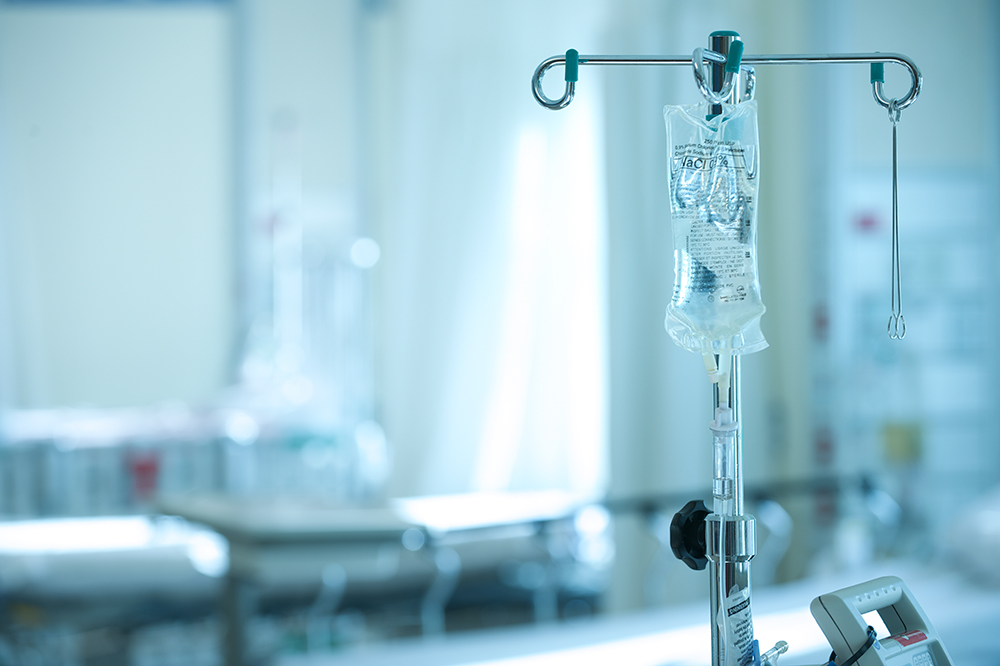
Dennis and his wife Patricia fell ill with COVID-19 following a turbulent eight weeks of caring for their hospitalized daughter in Toronto. Their daughter had major surgery and complications, and three weeks following her release, she tested positive for COVID-19.
Dennis and Patricia returned to London immediately to self-isolate and notified the Middlesex London Health Unit (MLHU). Patricia developed a bad cough and shortness of breath, and was very tired for about a week, but she recovered swiftly. Dennis, on the other hand, had a slight cough that quickly escalated into some very scary symptoms.
“I had a horribly bone-dry mouth with a terrible taste and I just felt awful,” he recalls. By the time he ended up in the hospital, he was completely exhausted.
Dennis went to University Hospital with severe dehydration. He had been vomiting violently and had lost considerable weight. The care team performed blood work and an x-ray, and treated Dennis with an IV before releasing him home with no admission. Two days later, Dennis got a call from Dr. Michael Nicholson, one of six physicians supporting LHSC’s Urgent COVID-19 Care Clinic.
“He said ‘Dennis, we’ve got a bed for you and you need to get in here now,’” Dennis recalls.
The same day, Dennis was admitted to Victoria Hospital in the Respirology Unit, which was just set up as the new isolation unit to specialize in the management of COVID-19 patients not requiring stay in the ICU. Fortunately, he did not require ventilation, but he did need expert care. Over the next five days, doctors, nurses and aides outfitted in full PPE vigilantly monitored his vital signs, did daily blood work, checked his blood pressure and observed his oxygen levels.
Dennis’ body and mind were exhausted. “You have the realization when you’re fighting this very vicious virus that, with no vaccine, you only have your body to fight it,” he says.
Thankfully, the days got better. The only thing Dennis could think of stomaching when he first arrived at the hospital were a liquid diet and bland cereal. By day four, he was longing for scrambled eggs and said he wouldn’t be sad if he never saw cereal again. Dr. Nicholson was encouraged by Dennis’ returning appetite and sense of humour.
The next day, Dennis was relieved to be advised that he could return home and reunite with his wife, who was still at home isolating herself.
“Within five days, the hospital took me from a very dark place to being able to come home,” Dennis says.
“The nurses and support staff were amazing,” he adds. “As soon as I entered that isolation room, they were extremely attentive. Dr. Nicholson and the other attending doctors, nurses and support staff were just terrific.”
Dennis’ follow-up care continues. The MLHU called him every three days for the month following his care to check on him, and the Local Health Integration Network (LHIN) has also called with offers of support. Dr. Nicholson continues to check in with Dennis and connected him with a nutrition specialist so that he can gain back the weight he lost. He will also see him for a full follow-up consultation in two months.
By June, Dennis said his energy levels had recently surged and that he is able to walk around his neighbourhood and exercise in the morning. His wife and daughter are also recovering well.
Thank you to our donors for supporting LHSC’s front-line staff while they care for patients during this time and beyond. And thank you to all of LHSC’s essential workers for bringing light and hope to a frightening time for patients like Dennis
